NPR’s Michel Martin, host of “All Things Considered,” recently interviewed Dr. Deborah E. Lipstadt about the resurgence of public antisemitism in the contemporary United States. Lipstadt is, most recently, the author of Antisemitism: Here And Now (Schocken, 2019). At Emory she holds positions as Dorot Professor of Modern Jewish History and Holocaust Studies and as associated faculty in the History Department. Read the full transcript of the interview here.
Category / Publications
Ruby Lal’s ‘Empress: The Astonishing Reign of Nur Jahan’ Named Finalist for ‘L.A. Times’ Book Prize

Congratulations to Dr. Ruby Lal, Professor of South Asian Studies and affiliated faculty in the History Department. Lal’s recent monograph, Empress: The Astonishing Reign of Nur Jahan (W. W. Norton & Company, 2018), has been named a finalist in the History category for the 2018 L.A. Times Book Prize. Read more about Lal’s book here.
Brian Vick Co-Edits ‘Securing Europe after Napoleon’ with Cambridge UP
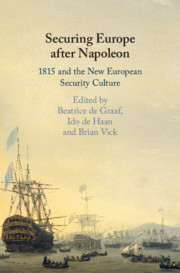
Cambridge University Press recently released the edited volume Securing Europe after Napoleon: 1815 and the New European Security Culture, co-edited by Emory Professor of History Brian Vick. Vick’s collaborators are Beatrice de Graaf (Universiteit Utrecht, the Netherlands) and Ido de Haan (Universiteit Utrecht, the Netherlands). The volume includes a chapter by Vick, who is a specialist in Modern Germany and Central Europe in the Long Nineteenth Century, entitled “The London Ambassadors’ Conferences and Beyond: Abolition, Barbary Corsairs, and Multilateral Security In The Congress Of Vienna System.” A book launch in New York City will take place on February 27. More details and registration can be found at: bit.ly/after-napoleon.
Yanna Yannakakis and Co-Author Bianca Premo Discuss Forthcoming Article in the ‘American Historical Review’
The February edition of the American Historical Review will feature an article co-authored by Yanna Yannakakis and Bianca Premo entitled “A Court of Sticks and Branches: Indian Jurisdiction in Colonial Mexico and Beyond.” Yannakakis is Associate Professor of History and currently holds the Winship Distinguished Research Professorship in History. Premo is Professor of History at Florida International University. The American Historical Association recently published a podcast with Yannakakis and Premo about the article, which will appear as part of a forum titled “Indigenous Agency and Colonial Law.” Listen to the episode here: “Bianca Premo & Yanna Yannakakis: ‘A Court of Sticks and Branches.‘”
Graduate Fellow Alexander Cors in ‘HASTAC’: “Doing History from the ‘Skies'”
Graduate fellow Alexander Cors recently published a blog post on the promises and practices of digital humanities for the interdisciplinary online community HASTAC. Cors’ principal research concerns the Mississippi Valley and Atlantic World, however his work with digital humanities has ranged from 3D visualizations of 1930s Atlanta to mapping legal networks of indigenous communities in New Spain (Mexico). Cors is currently one of the HASTAC Fellows at Emory’s Fox Center for Humanistic Inquiry Read the full post here: Doing History from the “Skies.”
Deborah E. Lipstadt Discusses New Book and Antisemitism in Interview with ‘The New Yorker’
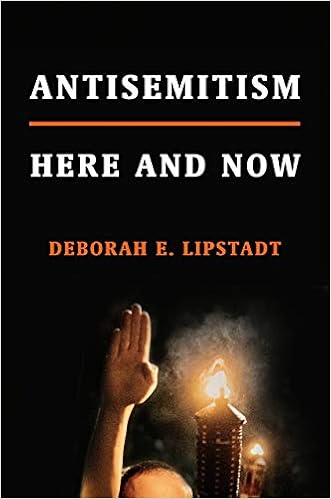
The New Yorker recently published an interview with Dr. Deborah E. Lipstadt, Dorot Professor of Modern Jewish History and Holocaust Studies and associated faculty in the History Department. Staff writer Issac Chotiner conducted the interview with Lipstadt, who recently published Antisemitism: Here and Now with Schocken. Read the full article on The New Yorker website: “Looking at Anti-Semitism on the Left and the Right: An Interview with Deborah E. Lipstadt.”
Goldstein’s ‘On Middle Ground’ Named Finalist for National Jewish Book Award
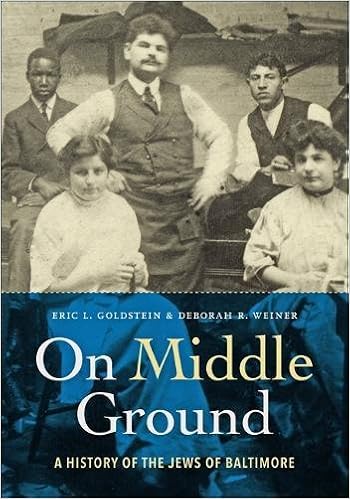
Congratulations to Eric Goldstein for his recent book On Middle Ground: A History of the Jews of Baltimore (Johns Hopkins Press, 2018), which was named a finalist for the American Jewish Studies Book Award of the Jewish Book Council. On Middle Ground was co-authored with Deborah R. Weiner. Goldstein is the Judith London Evans Director of the Tam Institute for Jewish Studies and Associate Professor of History and Jewish studies.
Doctoral Fellow Shari Wejsa on Grant Writing and Digital Projects in ‘HASTAC’
Graduate student Shari Wejsa recently authored a post on grant writing and digital projects for the interdisciplinary online community HASTAC. Wejsa is currently one of the HASTAC Fellows at Emory’s Fox Center for Humanistic Inquiry. Her research centers of modern Brazil and the Lusophone world, and her dissertation is titled, “Migrant Agency and Racial Identity: Angolan Refugees and Immigration Policy in Brazil, 1974-1988.” Read an excerpt of her post below, along with the full article here: “Grant Writing and Digital Projects.”
“Ode to the beloved grant application–being forced to engage in that awkward dance of showcasing your brilliant project proposal while featuring why you, with all of your skills and experience are the ideal candidate to execute your project without gloating too much or simply regurgitating your CV in narrative form. Though most seem to sigh and groan when thinking about grant applications and find excuses to work on any other looming deadline, some have to enjoy developing and fine-tuning them, right? Maybe? Any takers?”
Joseph Crespino in ‘The Washington Post’: “How will Broadway change Atticus Finch?”
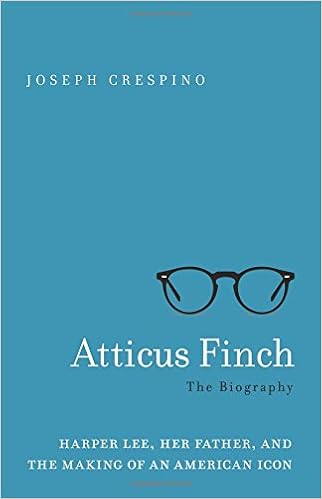
Jimmy Carter Professor of History and Department Chair Joseph Crespino recently authored a piece in The Washington Post on the Broadway adaptation of Harper Lee’s novel To Kill a Mockingbird. Crespino, who published Atticus Finch: the Biography with Basic Books in 2018, discusses the current production in the context of the 1962 adaptation of Lee’s novel as an award-winning film. The play is written by Aaron Sorkin and stars Jeff Daniels, and it has set box office records since opening in mid-December. Read an excerpt of Crespino’s piece below and the whole article here: “The ever-shifting hero of ‘To Kill a Mockingbird’: How will Broadway change Atticus Finch?”
“…Sorkin has the difficult task of pleasing throngs of Lee devotees while also making the story relevant to contemporary audiences. Can Sorkin avoid writing another white savior narrative? Can he acknowledge the agency of Calpurnia and Tom Robinson, the African American characters in the story? If he muddies the character of Atticus too much, will he run afoul of Lee’s estate, inviting further legal action? And how does he present the racism that was pervasive in the 1930s South to a new generation of Americans accustomed to trigger warnings and safe spaces?
Given the challenges, Sorkin and crew would do well to recall the definition of courage that Atticus gave to his son Jem: ‘It’s when you know you are licked before you begin but you begin anyway and you see it through no matter what. You rarely win, but sometimes you do.’”
Crespino’s ‘Atticus Finch: The Biography’ among ‘Atlanta Magazine’s’ 2018 Standouts
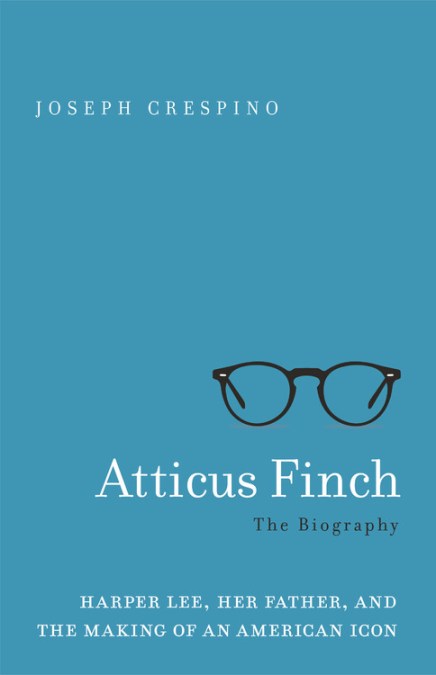
Atlanta Magazine has included Dr. Joseph Crespino’s Atticus Finch: The Biography among their list of standout books with Georgia ties from 2018. Crespino, who is Jimmy Carter Professor of History and Chair of the History Department, published the biography of the Harper Lee character earlier this year with Basic Books. Listen to and read an excerpt from Atticus Finch at Basic Books, and explore the other nine Georgia-linked titles from the Atlanta Magazine list here: “10 standout books with Georgia ties that you might have missed in 2018.”